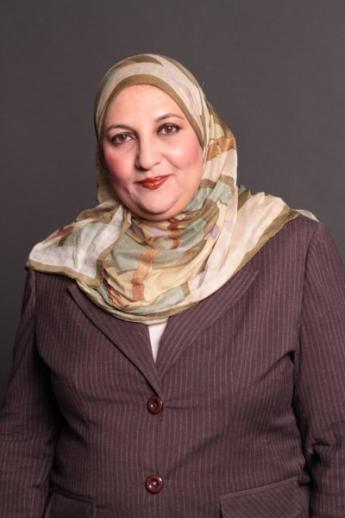Women's History Month: History In The Making
March 21, 2013

UMD Assistant Professor Sahar Mohamed Khamis, Ph.D., shares her research on women and cyberactivism during the Arab Spring.
By Natalie Kornicks
Assistant Professor Sahar Mohamed Khamis is not only making women’s history—she’s reflecting it in her research. An expert on Arab and Middle Eastern media, Khamis’ research focuses on the impact of the Arab Spring on women’s political engagement via the Internet, known as cyberactivism.
Through her transnational studies, she reminds us of the origin of Women’s History Month, which began as International Women’s Day on March 8th and grew into a month-long celebration of women’s accomplishments throughout history.
In anticipation of her upcoming WORLDWISE: Arts and Humanities Insights video which will be released this month, Khamis discusses her research on Arab and Muslim media, the impact of the Arab Spring on women’s cyberactivism and the advice she would offer women.
What is media like in the Arab and Muslim world?
Sahar Khamis: In general, Arab and Muslim media is a diverse field which incorporates both old and new types of media. It includes traditional media, such as newspapers, magazines and radio, besides evolving new types of media, such as social media. I believe that young people, in general, and young women, in particular, are now getting into the new media domain and making use of it for the purpose of social and political activism more than ever before.
Why is there an uprising of young women using new media to advocate social and political views?
SK: I think that is because now we have 70 percent of the population in the Arab world that is actually young people less than 35 years of age…and young people are technologically savvy. During the Arab spring, we have seen the use of Facebook for the purpose of networking and creating groups online, the use of blogs for brainstorming and creating ideas, the use of Twitter for the purpose of moment-by-moment on the ground organization and mobilization, and the use of YouTube for the purpose of documentation and showing the world what has been happening inside these countries. A combination of all of these factors together helped the success of the so-called Arab Spring uprisings, and it is also aiding the countries, which are still struggling, to achieve success.
What about activism and social media interests you most?
SK: I would say the transition to the more eclectic, more diverse realm of new media and how it is now enabling many more voices to be heard, including the voices of opposition, young people, and women activists. Social media gives a voice to the voiceless, allowing the marginalized groups and the minorities that were traditionally oppressed to be finally vocal and heard, so as to hopefully make an impact.
How would you say social media affects women in particular?
SK: I think that now many women are actually becoming active and are rising to a position of being political and social experts in their own communities. They’re very active offline in on the ground movements, and many are ready to pay the full price of their political participation, whether it being detained or hit, or even, in some cases, harassed or choked. As a whole, I would say that the use of social media and online tools has helped some of these women to go out of their own bubble, build bridges, and interact with people that they otherwise would have never had a chance to interact with.
How does anonymity play a role in cyberactivism for women?
SK: Basically, some of the women I interviewed said they started out anonymously and found some kind of protection in this, while others said they started out anonymous, but then had to declare their own names after that in order to give the reports they were giving to the media some kind of credibility. They said that if they had kept their names anonymous, then their writing and their activism would not have the same impact or credibility in the public’s eye.
How does your research impact women of all kinds?
SK: I would say that my own research, so far, reflects rather than impacts women’s activism, which is a phenomenon that is still very much in its infancy. I am hoping that in a few years from now, as these studies become more widely read and as women’s activism, in general, and cyberactivism, in particular, continue to grow and expand, that women will then have a chance to look at these studies and hopefully find something that would be useful or helpful in learning more about who they are and what they are trying to accomplish.
What advice would you offer women?
SK: That’s a good question, because the fact that women have been active in these movements and the fact that they have played effective roles, both online and offline, does not mean that the battle is over or that they have already achieved everything they want to achieve. The fact is Arab women still have a lot of challenges ahead of them, including the prevailing mindset in the country they belong to, the conservative traditional culture in some of these countries, and the rise of political Islam, to mention a few. There are still so many challenges facing women in years to come. My advice to women is to never give up, there is no turning back on women’s activism, political participation and social and political roles. Women should never give up their rights!
To see Khamis’ WORLDWISE Arts and Humanities Insight video when it is released, please visit: ter.ps//saharkhamis


